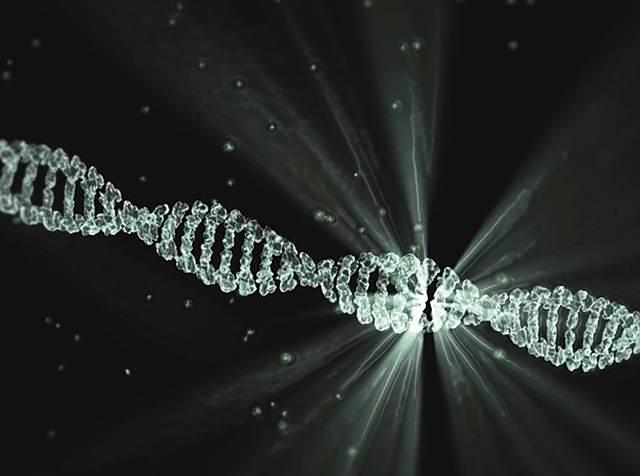15 June 2020. A biotechnology partnership is evaluating a synthetic antibody to make it safer for people with genetic diseases to receive gene-edited bone marrow stem-cell transplants. Beam Therapeutics in Cambridge, Massachusetts is assessing the antibody developed by Magenta Therapeutics, also in Cambridge, for its precisely edited gene therapies for inherited blood conditions such as sickle cell disease and other genetic disorders.
The Beam Therapeutics technology focuses on pairs of nucleic acids called base-pairs that make up DNA. Humans have about 3 billion pairs of nucleic acids — adenine (A) with thymine (T), and cytosine (C) with guanine (G) — with the sequence of these nucleic acid pairs comprising a person’s DNA or genetic code. When mutations or errors occur in these nucleic acids, the errors are transcribed into faulty instructions provided to cells with RNA and the proteins that result from those instructions.
The company uses Crispr — clustered, regularly interspaced short palindromic repeats — a genome editing technique derived from bacterial defense systems, to edit the base pairs. However, base pair editing requires more precise genetic targeting and and modification to prevent unwanted errors. As reported in Science & Enterprise at Beam’s founding in May 2018, the company’s editing process opens up a single DNA strand without cutting it, enabling edits on the targeted base-pair. The Crispr editing enzyme makes a small benign cut in the unedited DNA strand, prompting the surrounding cell to mend the strand with a complementary base-pair.
Magenta Therapeutics is developing treatments for diseases resulting from faulty blood forming cells in bone marrow, including genetic diseases, autoimmune disorders, and blood-related cancers. The company says as many as 60 percent of patients with these diseases cannot tolerate bone marrow transplants transferring healthy stem cells, either donated or with a patient’s own bone marrow, because current procedures pose too many risks.
Magenta says its technology redefines the bone marrow transplant process, with safer removal of disease causing cells, more efficient stem cell collection, more exact matching with patients’ stem cells allowing for higher doses, and reduction of graft-versus-host disease, the immune system reaction to donated stem cells. One of its candidates, code-named MGTA-117, is a synthetic antibody-drug conjugate, or ADC, designed to remove faulty stem cells expressing abnormal CD117 proteins, instead of risky processes such as radiation or chemotherapy.
MGTA-117 contains amanitin, a toxic compound on its own, but the company says precise targeting of MGTA-117 to CD117 proteins enables the treatment to remove only the diseased blood-forming stem cells in bone marrow, and not immune system blood-forming cells. Magenta says tests with lab animals, including monkeys, show MGTA-117 is safe, well tolerated, and can clear space in bone marrow for transplanted cells. MGTA-117, says the company, is in final preclinical studies.
The deal calls for Beam Therapeutics and Magenta to collaborate on adapting MGTA-117 to Beam’s base-editing treatments for inherited blood disorders sickle cell disease and beta thalassemia, where the body does not produce enough hemoglobin. Beam will fund clinical trials of MGTA-117 combined with it base-editing techniques, while Magenta will be responsible for further development in MGTA-117. Both companies will retain commercial rights to their respective technologies.
“Magenta has developed targeted ADCs as the preferred modality for our conditioning programs,” says Magenta’s president and CEO Jason Gardner in a company statement, “and we have designed MGTA-117 specifically to optimize it for use with a genetically-modified cell product delivered in a transplant setting.”
More from Science & Enterprise:
- Stem Cell Therapy Licensed for Genetic Eye Disease
- Blood Cancers Respond to Cord Blood Cells
- FDA Clears Placenta Cell Brain Cancer Trial
- Trial Shows Safety, Activity of ALS Stem Cell Therapy
- First Blood Disorder Crispr Treatments Reported
* * *


 RSS - Posts
RSS - Posts
You must be logged in to post a comment.